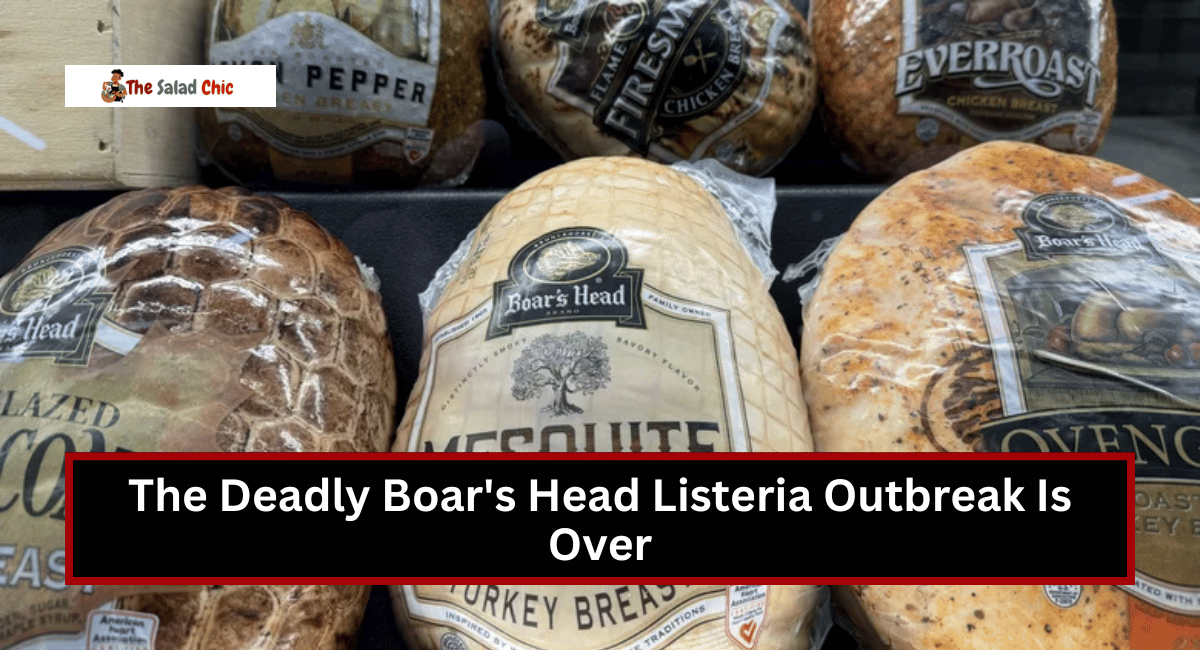After months of concern, the Boar’s Head listeria outbreak has finally been declared over. This incident, one of the most enormous deli meat recalls in recent history, began in July and led to tragic consequences, including multiple deaths and widespread illness.
Here’s a detailed look at what happened, who was affected, and how to stay safe.
How the Boar’s Head Listeria Outbreak Began
The outbreak started with a liverwurst recall on July 25, 2024, after contamination was traced back to a Boar’s Head facility in Jarratt, Virginia. Initially, the recall focused on liverwurst, but it soon expanded to include all products from this plant.
By September, the company had pulled more than 7 million pounds of meat from the market, including over 200,000 pounds of liverwurst.
Listeria monocytogenes, a bacterium that thrives in refrigerated environments, was found to be the culprit. The contamination caused severe illnesses, especially among vulnerable groups, leading to the plant’s eventual closure.
Impact of the Outbreak Lives Lost and Widespread Illness
The Boar’s Head listeria outbreak affected at least 71 people across multiple states, with tragic results. Ten people lost their lives due to severe listeriosis infections.
Many of the victims were elderly, pregnant women, or individuals with weakened immune systems—groups particularly at risk for listeria infections.
The impact wasn’t just limited to one area. While the plant was in Virginia, cases were reported as far west as Arizona, with the northeast states like New York, Maryland, New Jersey, and Virginia being the most brutal hit.
CDC Declares the Outbreak Over
After months of investigations and recalls, the Centers for Disease Control and Prevention (CDC) declared the outbreak over on November 21, 2024. Since its last update in September, the CDC confirmed only two additional cases of illness.
This marked a significant milestone in resolving one of the recent deadliest deli meat outbreaks.
Despite this, the CDC continues to emphasize caution for vulnerable groups. Pregnant women, older adults, and those with weakened immune systems are urged to avoid deli meats or ensure they are heated to safe temperatures before consumption.
What Went Wrong at the Jarratt Facility?
The outbreak’s root cause was unsanitary conditions at the Boar’s Head plant in Jarratt, Virginia. Inspectors found horrifying violations, including:
- Mold around handwashing stations.
- Water dripping onto meat products.
- Meat buildup on the walls.
These conditions created a breeding ground for bacteria, leading to widespread contamination. The severity of the findings ultimately led to the permanent shutdown of the facility.
A Reminder of Past Outbreaks
The Boar’s Head outbreak has been compared to other major foodborne illnesses. The CDC noted that it was the largest listeriosis outbreak since the 2011 cantaloupe outbreak, which resulted in 33 deaths and 147 illnesses.
That outbreak was similarly caused by unsanitary conditions, underscoring the importance of stringent hygiene practices in food production facilities.
Lessons Learned and How to Stay Safe
Listeria is a particularly dangerous bacterium because it can survive in cold environments, such as refrigerators. To reduce the risk of listeriosis:
- Avoid risky foods: Vulnerable individuals should avoid unheated deli meats, unpasteurized dairy products, and smoked seafood.
- Heat deli meats: Heat a microwave or oven until they are steaming hot, killing any bacteria present.
- Practice good food hygiene: Always wash your hands, utensils, and surfaces after handling raw foods.
- Store foods properly: Keep your refrigerator at 40°F (4°C) or lower and discard expired or questionable products.
Conclusion
The Boar’s Head listeria outbreak serves as a sobering reminder of the importance of food safety. While the CDC has declared the outbreak over, the impact will be felt for years.
For consumers, staying informed and practicing safe food handling can help prevent future tragedies. Always prioritize safety, especially when dealing with high-risk foods like deli meats.
By learning from this incident, companies and consumers can work towards preventing another deadly outbreak.
FAQs
What is listeriosis, and who is most at risk?
Listeriosis is a severe infection caused by consuming food contaminated with Listeria monocytogenes. It poses the most significant risk to pregnant women, older adults, and people with weakened immune systems. Symptoms include fever, muscle aches, and gastrointestinal issues.
How can I protect myself from listeria in deli meats?
The CDC recommends avoiding deli meats or heating them to a safe temperature (165°F) before eating. Always store deli meats in the refrigerator and consume them by expiration.
What were the main issues at the Boar’s Head plant?
Inspectors found mold near handwashing stations, water dripping onto products, and meat buildup on walls. These unsanitary conditions allowed listeria to thrive, leading to widespread contamination.
Why did the outbreak affect so many people?
The infected products were distributed widely, with the northeastern U.S. being the most brutal hit. The bacterium’s survival ability in cold environments likely contributed to its spread.
Has the affected plant reopened?
No, the Boar’s Head facility in Jarratt, Virginia, was permanently closed due to the severity of the violations and the extent of the outbreak.
READ MORE: A Limited-Time Charcuterie Experience at Aldi for the Holidays

